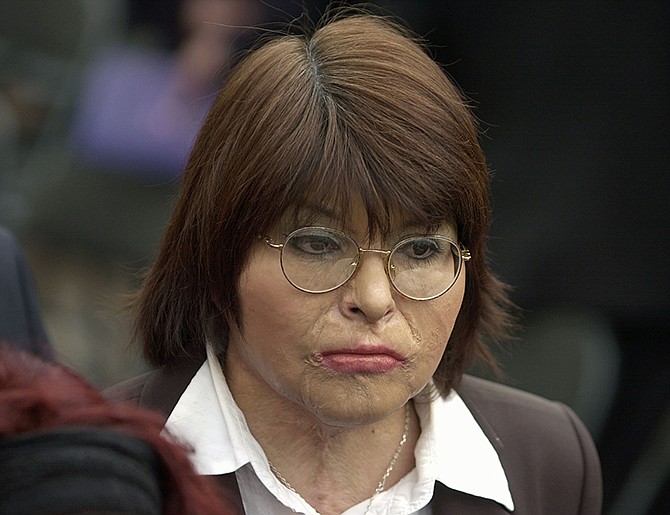SANTIAGO, Chile (AP) - Seven former members of the Chilean military have been arrested in the fatal burning of a 19-year-old U.S. resident who was killed in a 1986 protest against the military dictatorship then in power.
The two former officers and five former noncommissioned officers were taken into custody Tuesday night after judge Mario Carroza issued the arrest order.
The latest development in the investigation came after another former soldier testified in November before the judge, breaking a nearly three-decade pact of silence in one of the most prominent cases of human rights abuses during the 17-year dictatorship.
"These people are going to be questioned and we're going to look for information that allows us to determine whether they were involved in some way. What we do know is that they were all there at the time of" the death, Carroza said.
Soldiers doused 19-year-old Rodrigo Rojas and 18-year-old Carmen Quintana with gasoline and set them ablaze during a street demonstration on July 2, 1986.
Rojas died four days later. He was a Chilean-born photographer visiting from the United States, where he lived with his mother in political exile.
Quintana survived and underwent lengthy recovery treatment for severe burns at a hospital in Canada, where she now lives. During a 1987 visit to Chile, Pope John Paul II consoled and embraced her.
On Tuesday, Quintana thanked the former solider identified as Fernando Guzman for coming forward with new information in the case. In an interview with Radio Cooperativa, she said the soldiers involved in the attack were teenagers like her at the time and were also victims of the dictatorship because they received death threats to keep silent.
"Today the truth is finally being told and validates what I and so many witnesses always held. Better late than never," Quintana said.
A judge in 1999 ordered the Chilean government to pay Quintana $470,000.
The burning attack drew condemnation from foreign governments and rights groups in Chile and abroad. At the time, Chile's army denied any involvement, and dictator Augusto Pinochet even suggested Rojas and Quintana accidentally set themselves on fire when they carried flammable material to ignite barricades.
In his testimony, Guzman denied the two were the victims of their own firebomb, calling it "a total lie."
He said he was carrying the radio that day and he had a clear view of the attack from atop a military truck.
He said a man was lying on the ground while a woman was facing a wall. The commander of one of the patrols that had detained the two, Lt. Julio Castaner, then ordered a soldier to douse them in gasoline, spraying the woman from head to toe and the man on his back, Guzman testified.
Guzman said Castaner used a lighter to taunt the pair and then set them afire. Quintana ran a short distance before soldiers covered her in blankets to extinguish the flames, he said.
Castaner said it would be best to kill them, but Lt. Pedro Fernandez from another patrol on the scene "said no because he was a Catholic," Guzman recalled.
Rojas and Quintana were taken in a military truck and were dumped near Santiago's airport.

